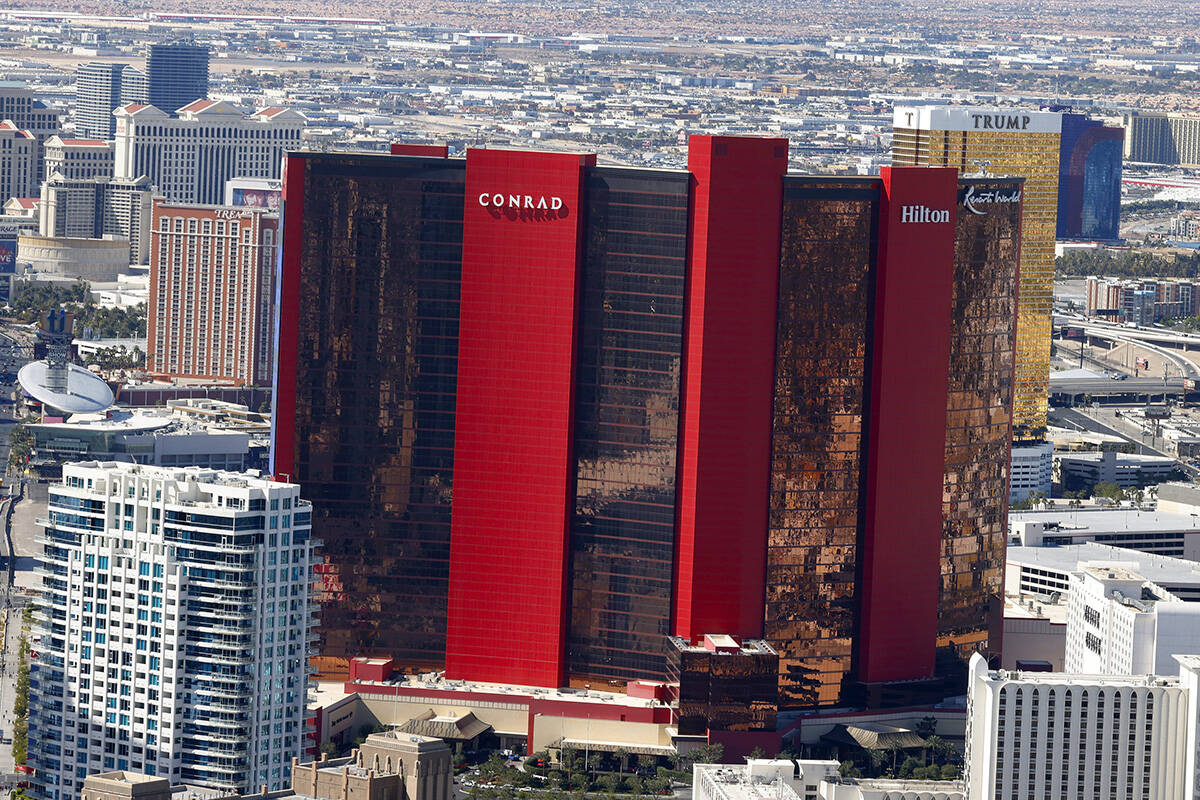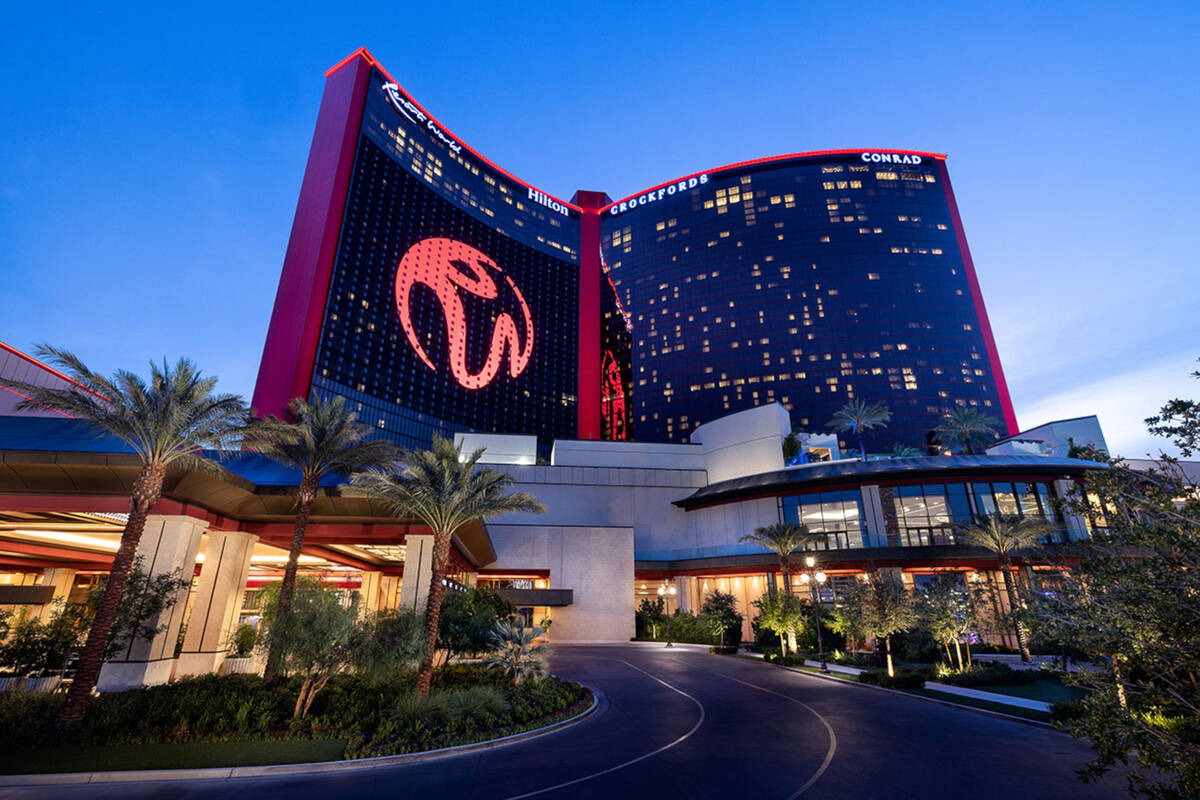Why a Strip casino is in deep water for violating federal anti-money laundering laws
Nevada gaming authorities have accused a Las Vegas casino of violating laws and regulations stemming from its ties to multiple individuals with questionable backgrounds.
At the heart of the Nevada Gaming Control Board’s 12-count disciplinary complaint against Resorts World casino-hotel and its parent company Genting Berhad are claims that the Las Vegas Strip property failed to adhere to and enforce anti-money laundering (AML) provisions.
Due to the gambling industry’s well-documented history with organized crime, the federal government takes AML compliance very seriously. Casinos from Las Vegas to Atlantic City and nearly everywhere in between follow strict AML procedures in order to receive and maintain their state-issued gaming licenses. The penalties for not properly following AML rules range from hefty fines to operational sanctions to license revocation.
In its Aug. 15 complaint, the NGCB recommends that the Nevada Gaming Commission not only impose a fine for each violation but suggests the “commission take action” against Resorts World Las Vegas’ gaming “license(s), registrations, and/or findings of suitability.” In the event that RWLV’s license is revoked or suspended, the board wants the commission to “consider the appointment of a supervisor” so that the casino can continue to generate taxes and thousands of people do not lose their jobs.
Casinos are a ‘target’ for money laundering schemes
AML compliance is not a novel concept for casino operators in the United States.
Terry Johnson, a former NGCB member and Nevada Labor Commissioner who currently serves as an adjunct professor of gaming law and gaming regulations at UNLV, said casinos have a critical role in AML compliance.
“In the gaming context, (AML compliance) essentially involves having systems, people and procedures in place to prevent the gaming industry from being used to facilitate criminal activity, namely money laundering. The overarching objective of course is to safeguard the U.S. financial system,” Johnson said. “Between the large volume of cash transactions and the mistaken belief of anonymity held by fraudsters, the gaming industry will likely remain a target of money laundering attempts.”
The American Gaming Association — the industry’s Washington D.C.-based trade group — has been educating its members (casino operators) about AML compliance for years. The AGA offers information and resources to all its members to ensure the industry’s continued viability.
The impetus for AML regulations in the gaming industry is the 1985 U.S. Bank Secrecy Act, which defines state-licensed casinos as financial institutions.
As a result, casinos must satisfy certain requirements outlined in the BSA, such as filing a currency transaction report (CTR) when more than $10,000 passes between the house and a customer (or vice versa) in a 24-hour period. Casinos are also responsible for filing a suspicious activity report (SAR) when it “knows, suspects, or has reason to suspect” gambled funds in excess of $5,000 originated from ill-gotten means, according to a 2022 AML compliance report issued by the AGA.
Casinos in the U.S. must also put together know-your-customer (KYC) programs to ensure any money gambled at their establishments was legally obtained. This is referred to as confirming a source of funds, or SOF.
“To safeguard the integrity of the casino industry and the U.S. financial system, casino companies and gaming operators have developed effective risk-based programs to ensure compliance with the legal requirements of the federal Bank Secrecy Act and associated AML statutes and regulations. AML programs also protect the casino and its employees from even unwittingly being involved in money laundering criminal conduct,” the AGA document states.
AML compliance is essential for the sustainability of Nevada’s casinos because “integrity matters,” said Johnson.
“Everyone from casinos and their customers to investors and shareholders, along with gaming regulators, all have a vested interest in ensuring the integrity of the gaming industry, especially in Nevada,” he said. “AML programs are the centerpiece to maintaining that integrity.”
Resorts World ‘welcomed’ questionable gamblers, perceived as ‘avenue to launder funds’
Since opening in 2021, Resorts World has become a recurring backdrop in a series of gambling scandals that have already resulted in multiple arrests and federal convictions and victimized Major League Baseball’s biggest international superstar.
The NGCB’s investigation describes an “overall lack of control,” and “acceptance among Resorts World executives,” toward illicit behavior to such an extent that it resulted in the “perception and/or reality” that the casino is “an avenue to launder funds” and “further criminal activity.”
The culture at Resorts World Las Vegas, according to the NGCB complaint, was one in which “individuals with suspected and actual ties to illegal bookmaking, with histories of federal convictions related to illegal gambling businesses, and with a history of ties to organized crime,” were “welcomed” and enticed to gamble.
Scott Sibella, the property’s former president and chief operating officer between pre-opening 2019 through September 2023, was charged with violating the BSA while president of the MGM Grand casino-hotel, where he worked prior to joining Resorts World. While overseeing MGM Grand, Sibella failed to properly report suspicious financial transactions of a since-convicted illegal bookmaker named Wayne Nix.
In May, Sibella pleaded guilty to one count of failing to file a SAR. He was sentenced to one year probation and ordered to pay a fine of less than $10,000.
The NGCB has an active investigation into Sibella, the details of which the board has not yet publicly disclosed.
Among myriad charges laid out in the NGCB’s Aug. 15 complaint, Resorts World Las Vegas is accused of allowing an illegal bookmaker named Mathew Bowyer to gamble at the property with impunity for almost two years. According to the NGCB complaint, Resorts World failed on multiple fronts, including not vetting Bowyer’s source of funds and not banning him when it had reasonable cause to believe he was involved with illicit gambling.
Bowyer was the bookie for Ippei Mizuhara, the former interpreter for Los Angeles Dodgers player Shohei Ohtani. Mizuhara stole nearly $17 million from Ohtani to pay off gambling debts, according to federal authorities. He pleaded guilty to bank fraud and tax evasion in June, and is scheduled to be sentenced in October.
Bowyer pleaded guilty to multiple charges in August. He admitted to running an illegal sports gambling operation in Southern California and Las Vegas. Court documents said Bowyer occasionally conducted his illicit gambling business while actively playing at Resorts World, something that was allegedly permitted by RWLV executives. He is scheduled to be sentenced in federal court on Feb. 7.
The NGCB complaint also wants to hold the casino accountable for doing business with two other individuals, Edwin Ting and Chad Iwamoto, because both men had been previously convicted of illegal gambling offenses.
Nevada gambling regulators ‘concerned’ with process, procedure
The Resorts World Las Vegas situation exposed weaknesses in the current reporting system, according to industry insiders and experts as well as the NGCB complaint itself.
Between 1985 and 2007, Nevada gaming regulators oversaw Las Vegas and Silver State casinos’ compliance with AML and BSA provisions under Commission Regulation 6A. Regulation 6A was adopted in Nevada due to an exemption in the federal law that allowed states with similar laws already on the books to manage their own affairs.
In 2007, 6A was repealed — with input from the casino industry — after it was deemed too burdensome to properly adhere to the federal guidelines. As such, the U.S. Department of the Treasury assumed control of regulating the industry’s cash transactions and AML programs.
“Although the federal government has exclusive jurisdiction over Nevada casinos to enforce federal requirements pertaining to cash transactions, suspicious activity reporting, and AML programs, the Commission and the Board remain concerned with these issues despite the repeal of former regulation 6A … because nonrestricted gaming licensees are expected and relied upon to comply with their obligations under federal law, to self-regulate, and implement sufficient and appropriate policies, controls, and procedures,” the Aug. 15 complaint reads.
David Danzis can be contacted at ddanzis@reviewjournal.com. Follow AC_Danzis on X.


















